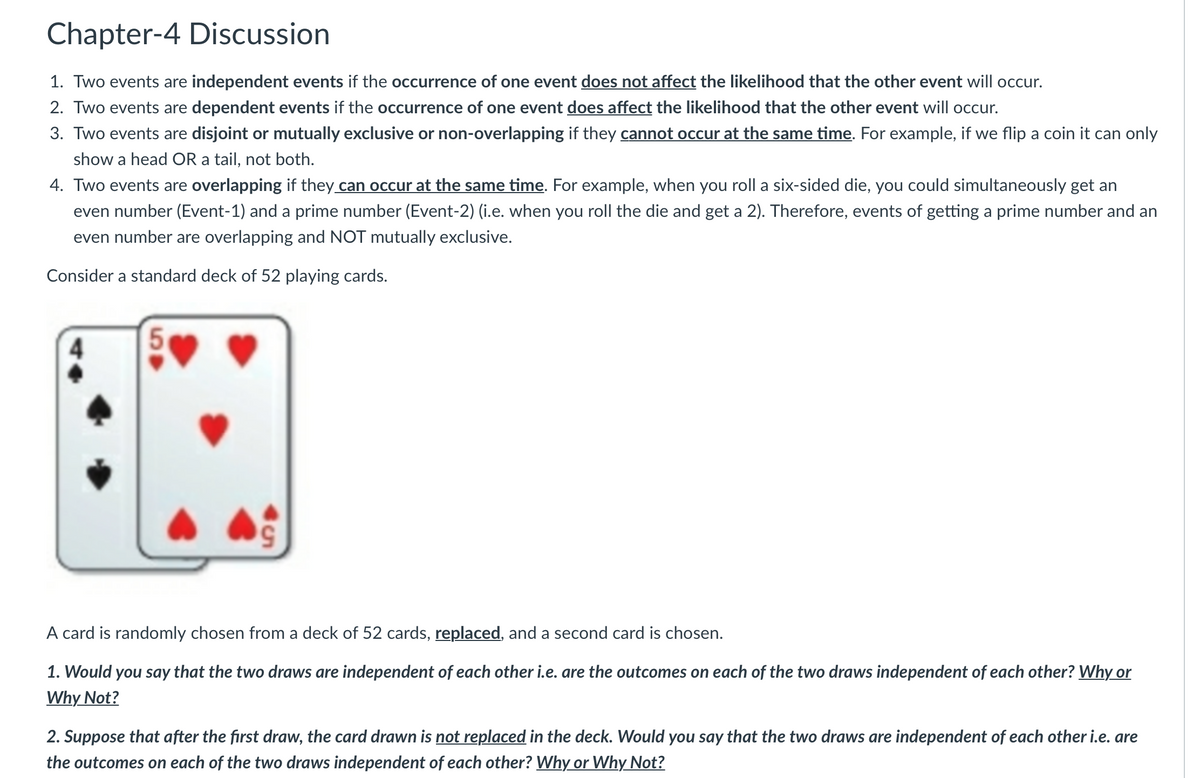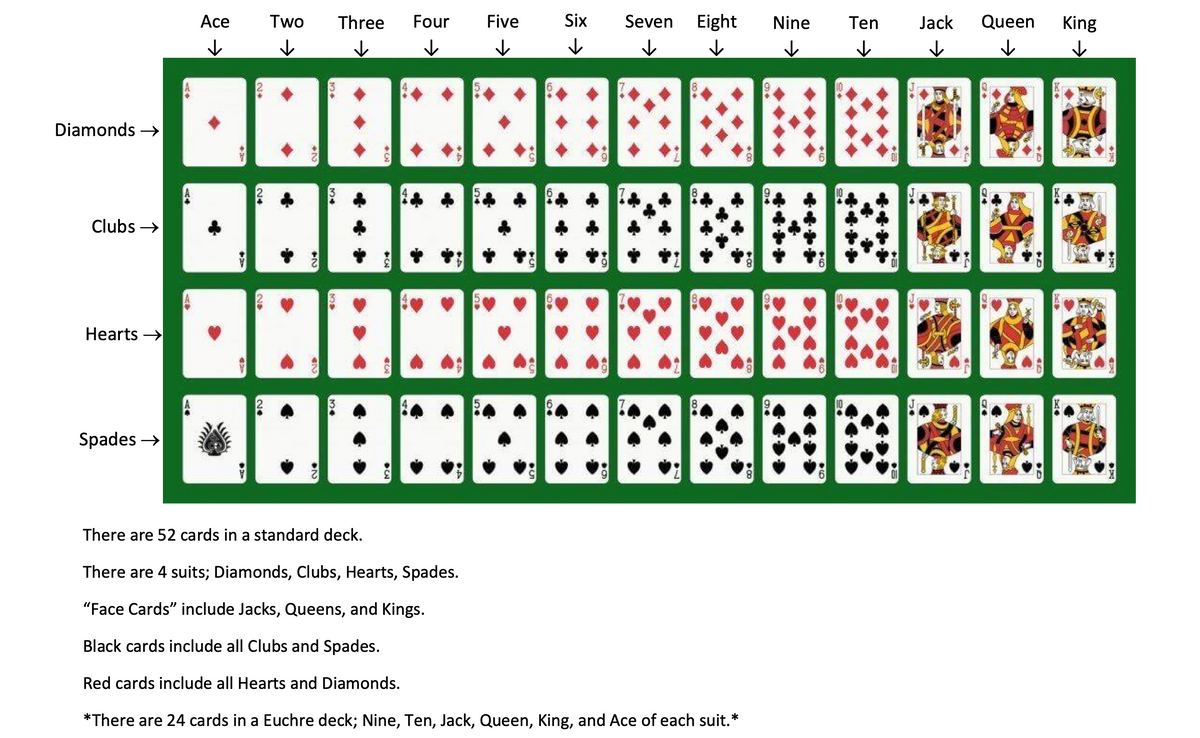Two events are independent events if the occurrence of one event does not affect the likelihood that the other event will occur. Two events are dependent events if the occurrence of one event does affect the likelihood that the other event will occur. Two events are disjoint or mutually exclusive or non-overlapping if they cannot occur at the same time. For example, if we flip a coin it can only show a head OR a tail, not both. Two events are overlapping if they can occur at the same time. For example, when you roll a six-sided die, you could simultaneously get an even number (Event-1) and a prime number (Event-2) (i.e. when you roll the die and get a 2). Therefore, events of getting a prime number and an even number are overlapping and NOT mutually exclusive. Consider a standard deck of 52 playing cards. A card is randomly chosen from a deck of 52 cards, replaced, and a second card is chosen. 1. Would you say that the two draws are independent of each other i.e. are the outcomes on each of the two draws independent of each other? Why or Why Not? 2. Suppose that after the first draw, the card drawn is not replaced in the deck. Would you say that the two draws are independent of each other i.e. are the outcomes on each of the two draws independent of each other? Why or Why Not? 3. Consider the following three events as defined below: Event A: Drawing a Spade Event B: Drawing a King Event C: Drawing a Red Card a. Are events A and B Non-overlapping or Overlapping? Why or Why not? b. Are events A and C Non-overlapping or Overlapping? Why or Why not?
Chapter-4 Discussion
- Two events are independent events if the occurrence of one
event does not affect the likelihood that the other event will occur. - Two events are dependent events if the occurrence of one event does affect the likelihood that the other event will occur.
- Two events are disjoint or mutually exclusive or non-overlapping if they cannot occur at the same time. For example, if we flip a coin it can only show a head OR a tail, not both.
- Two events are overlapping if they can occur at the same time. For example, when you roll a six-sided die, you could simultaneously get an even number (Event-1) and a prime number (Event-2) (i.e. when you roll the die and get a 2). Therefore, events of getting a prime number and an even number are overlapping and NOT mutually exclusive.
Consider a standard deck of 52 playing cards.
A card is randomly chosen from a deck of 52 cards, replaced, and a second card is chosen.
1. Would you say that the two draws are independent of each other i.e. are the outcomes on each of the two draws independent of each other? Why or Why Not?
2. Suppose that after the first draw, the card drawn is not replaced in the deck. Would you say that the two draws are independent of each other i.e. are the outcomes on each of the two draws independent of each other? Why or Why Not?
3. Consider the following three events as defined below:
Event A: Drawing a Spade
Event B: Drawing a King
Event C: Drawing a Red Card
a. Are events A and B Non-overlapping or Overlapping? Why or Why not?
b. Are events A and C Non-overlapping or Overlapping? Why or Why not?


Trending now
This is a popular solution!
Step by step
Solved in 5 steps







